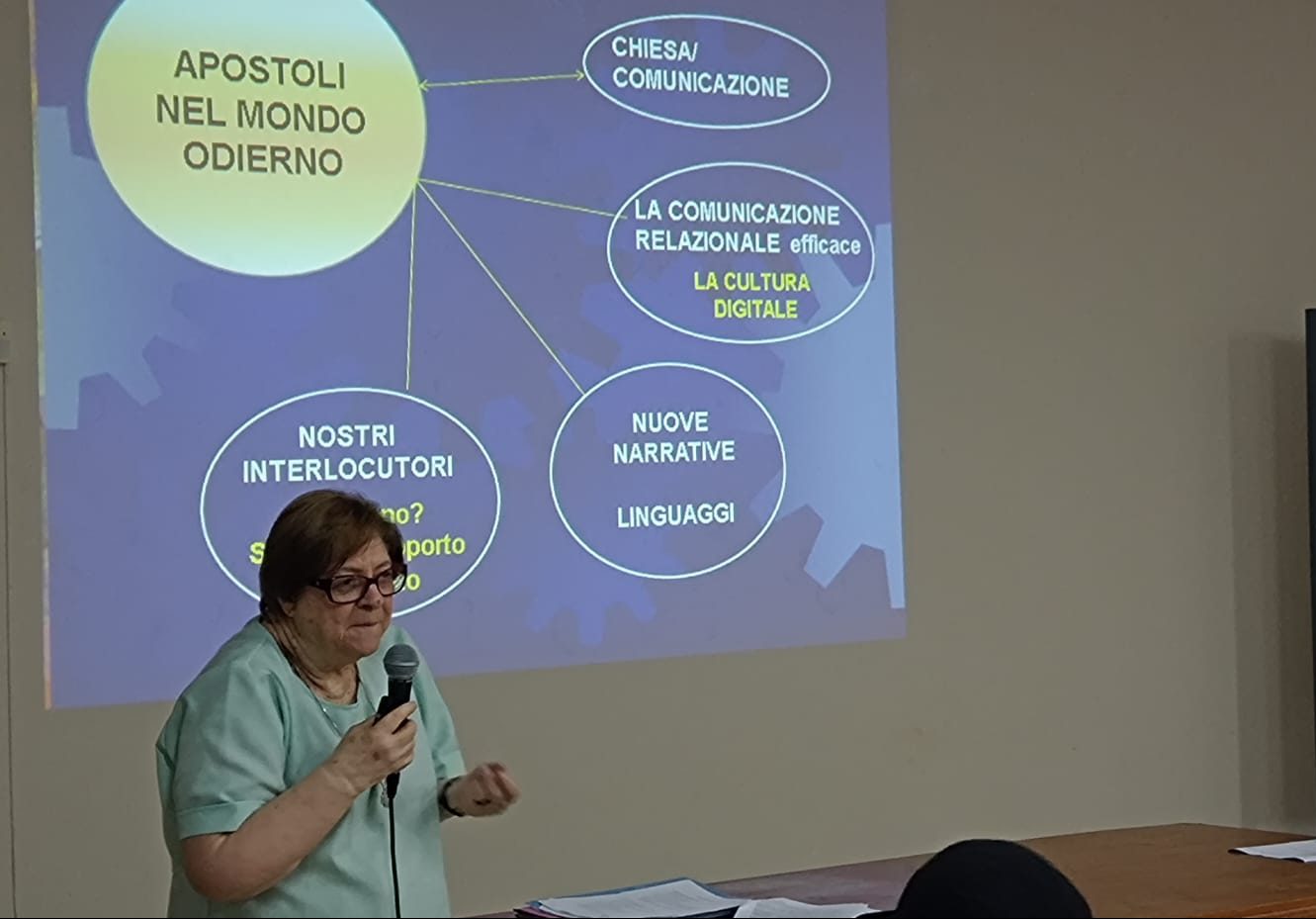“Communicating the Gospel: being apostles in today’s world”. This is the theme around which the PIME missionaries present in Brazil, Mexico and the United States reflected, who gathered in Ibiporã in Brazil for a moment of ongoing formation. Particular attention was paid to digital challenges
In recent weeks, ongoing formation for the Institute’s missionaries was held in the PIME house of Ibiporã in Brazil. At the center of the meeting, a very topical theme, which was treated by Sr. Joana Terezinha Puntel, of the Congregation of the Pauline Sisters.
At the beginning of her talk, the trainer used the image of the gear to better understand the dynamics of communication. Just as each part of the mechanism works only if there is contact with the other, also to communicate the Gospel and to be apostles in today’s world it is necessary to have contact with the realities in which we live and the desire to keep up to date with the various means of communication.
Sister Joana took up some biblical foundations: evangelization, before being a form of communication, is above all the search for a relationship of friendship with Jesus as the first disciples experienced: «It begins with a passionate search for the Lord who calls and wants establish a dialogue of friendship with each person, wherever they are (cfr Gv 15,12-17). The Apostles are the first to report this to us, even recalling the day and time they met him: “It was about four in the afternoon” (Gv 1,39)”. After that, the nun also illustrated the progress of the Church (Pre-Council, Council and post-Council) through various documents and messages from the Popes regarding the field of communication in the modern age. In particular, you underlined the n. 37c of Redeemer Mission of 1990 which had already foreseen the globalization of communication: «The first Areopagus of the modern age is the world of communications, which is unifying humanity making it – as they say – “a global village”. The means of social communication have reached such importance as to be for many the main information and training tool, guide and inspiration for individual, family and social behaviour. Above all, the new generations grow up conditioned by them».
Sister Joana then introduced the concept of digital culture and its relevance in the world we live in and its impact on human relationships: «This is a changing society. It is debated whether culture has become like this because of technology. But there is not only technology: in the midst of all this there is the person, there are the relationships that are transformed».
To go further into the theme of digital culture, Sister Joana shared with the participants the thought of the philosopher Luciano Floridi who explains the great change that the Internet has brought, or rather the opening to the digital world, which is not only a means, but a “space” and a lifestyle: «We need to understand that digital is an environment, not a simple tool. Digital is part of the places we live, where we spend our time and where we interact». Digital culture has also created a new understanding of human relationships, in the sense that not only are you connected “onLine”, but you live inside it “onLife”.
All of this change brings with it many challenges for missionaries as well. For this reason, Sister Joana highlighted the fact that, in the context of digital culture, we must learn not only to use technological means for the mission of proclaiming the Gospel, but to “be and stay in the digital world as a Christian human experience and testimony”. Sister Joana also presented the various interlocutors in society, or both, the various generational groups, their characteristics, the differences in the way they perceive things and communicate (baby boomers, generation x, millenials, centenials, etc.). It is important to know all these aspects since we already live in a multifaceted society: even the missionary is in the midst of all this and wonders about how to communicate with others, about which languages to use with each generation, especially with young people, in order to communicate the gospel.
The Pauline nun cited n°371 of the Directory for Catechesis which says: «In the process of proclaiming the Gospel, the real question is not how to use the new technologies to evangelise, but how to become an evangelising presence on the digital continent». This again underlines the change in mentality necessary to be present in the digital world and to manage human relationships on the web, moving from a mentality of mere use of the means to an awareness of being there.
At the end of the course, there was a moment in which the missionaries shared some thoughts, perplexities and hopes in the field of communication, digital culture and its six interlocutors, i.e. the recipients of the proclamation of the Gospel: «The generational challenge is like the one we face when we leave for the mission: we are confronted with a different reality, with different languages to understand and learn». Another missionary said: «It is impressive how captivating digital culture is and how young people are fully involved in it. We must educate them in values; the human being is looking for values, even if we are inside a digital culture. This is also why it is necessary to make Jesus Christ rediscover also with new means”.
The training days were marked by frontal reports and group work, but also by moments of biblical reflection led by Father Sergio Bradanini, biblical scholar and PIME missionary. The course was organized by the Institute’s Ongoing Formation Commission. Also present were Father Ferruccio Brambillasca, Superior General of PIME, Father Raffaele Manenti, councilor and contact person for America, and Father Luigi Bonalumi, rector of the Monza seminary who is part of the Formation Commission.
